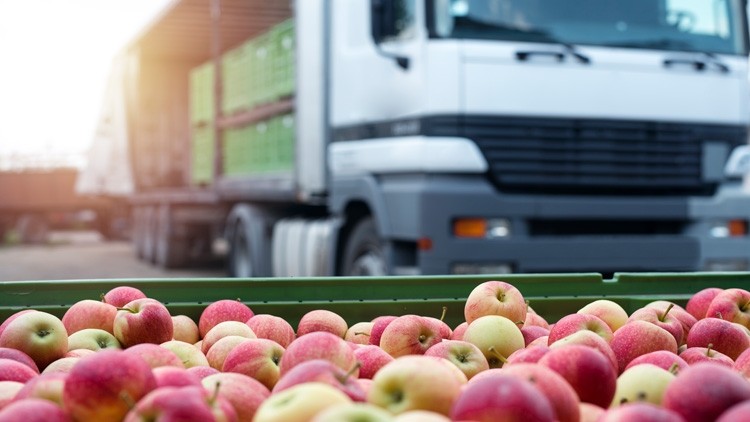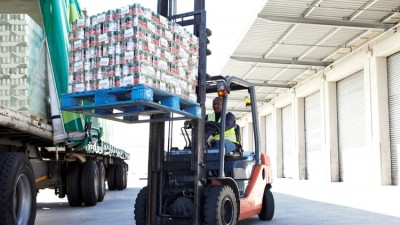Foodservice price inflation shows signs of easing but remains above 20%

The figure is below the record high of 22.9% in December 2022, and there is now clear evidence of price increases beginning to slow. The full basket of food measured by the Index increased by only 0.7% month-on-month — one third of the average rate recorded in the latter part of 2022.
This pattern, combined with prior year base effects, should continue to push down inflation during the remainder of 2023, with prices rising but at a slower rate than in 2022. However, all categories of the Index remain in double-digit inflation, with oils and fats achieving the highest rate of 37% year-on-year; and the sugars, jams and syrups category lowest at 12%.
Major upstream influencers on the price of food, including oil prices, exchange rates and commodity markets, are now stable when compared to 2022. The cost of oil remained level during February at $84 a barrel, and sterling was stable against the euro at €1.13, and marginally down against the dollar at $1.20.
“News of an easing in foodservice price inflation is very welcome after months of historically high numbers,” says James Ashurst, client director at CGA by NIQ.
“Key indicators point to further respite as the year goes on, but commodity markets and oil prices remain vulnerable to various macro and micro pressures, so there is no room for complacency. With pressure on consumers’ spending continuing, trading conditions will remain very challenging for businesses across the sector.”
Pressure on margins still set to increase
The UN FAO Food Price Index, meanwhile, averaged 129.8 points in February 2023, marginally down by 0.6% from January.
This continues the downward trend for the 11th consecutive month, and the index has now fallen by 29.9 points (18.7%) from the peak of March 2022. The marginal decline in February reflected significant drops in the price indices of vegetable oils and dairy, together with fractionally lower cereals and meat indices, more than offsetting a steep rise in sugar prices.
Lower consumer demand in the sector is now beginning to impact sales volumes, which should also help to ease prices. However, energy and labour costs remain a significant challenge, so the rate of inflation decline may be slow for some time.
“In spite of falling inflation we expect the pressure on margins for operators to increase during 2023,” says Shaun Allen, Prestige Purchasing CEO.
“Although the rate of increase will slow, supplier food prices will continue to increase during the year — at a time when consumer demand will be tightening and scope for increased menu pricing will be limited. Operators should take action now to optimise their supply to preserve margin.”
Urgent intervention required
Trade body UKHospitality says that the CGA figures, coupled with rising energy costs and a lack of support, signals the need for urgent intervention to save hospitality businesses.
“It’s becoming ever more clear that this level of inflation is simply not going to budge for a significant period of time and, while there have been extremely marginal reductions, there appears to be no end in sight for businesses,” says Kate Nicholls, chief executive of UKHospitality.
“The 20% level of inflation in food service we’re seeing confirmed once again today, alongside the £7.3 billion per annum in rising energy costs as a result of the reduction in government support, is unsustainable.”
With sustained inflation showing no meaningful sign of abating and price rises mounting across the board for hospitality businesses, UKHospitality is urging energy regulator Ofgem to force suppliers to engage in automatic renegotiations for those businesses paying the highest costs.
Yesterday (13 April), chef Simon Hulstone, who owns the Michelin-starred The Elephant restaurant in Torquay, tweeted that his monthly gas bills had increased from £345 to an estimate of £3,018 between May 2021 and May 2023; while his electricity costs have risen from £1,509 per month to an estimate of £5,279.
Hulstone adds that he's currently unable to renegotiate his energy contract until the end of October this year.
“Energy costs, food price inflation and staffing shortages are a triple whammy that are dragging businesses to failure,” continues Nicholls.
“Something has to be done or hospitality will look like a shell of itself in a year’s time.
“The simplest action on offer is to get energy suppliers in line. It’s Ofgem’s job to do that and we need to see action urgently. Automatic renegotiation of the highest cost energy contracts, signed during the peak of the crisis, needs to be enforced and suppliers need to show flexibility in their payment rates.
“Those two actions would remove a huge weight from the shoulders of businesses and decrease the possibility of venues having to put up prices to survive, a move which ultimately fuels further inflation.”





















